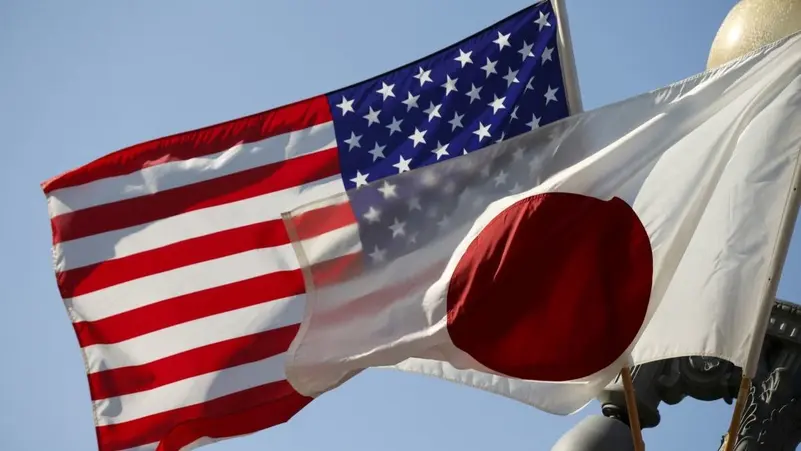Japan’s trade envoy Ryosei Akazawa flew to Washington on Wednesday for a second round of talks. The goal is to ease US tariffs that have hurt Japanese companies. The talks will take place on Thursday with US Treasury Secretary Scott Bessent and other key officials.
Japan hopes to get relief from the tariffs imposed by former President Donald Trump. These include a 10 percent base tariff on many goods, plus higher duties on cars, steel, and aluminum.
What Japan Might Offer
Japan may make some offers to help move the talks forward. One option is to change the way it handles safety checks for imported US vehicles. Trump has said Japan’s current testing rules make it hard for US carmakers to compete.
Japan may also agree to buy more US corn and soybeans. This could help reduce the US trade deficit with Japan. Another idea is to work with the US on energy projects. One option being discussed is to help develop liquefied natural gas (LNG) fields in Alaska.
Akazawa said at the airport before his flight that Japanese companies are losing money every day because of the tariffs. He added that one automaker told him it is losing about $1 million every hour due to the extra costs.
Tariffs on Hold for Now
President Trump earlier announced “reciprocal” tariffs of 24 percent on Japanese goods. But he paused these tariffs for 90 days. The pause also applies to other countries, except China. The talks in Washington are a chance for Japan to avoid these higher tariffs becoming permanent.
Akazawa said Japan will not change its main demand: all US tariffs must be removed. “That is our clear goal, and we will not move from it,” he said. He also hopes the talks will lead to a “win-win relationship” for both countries.
Car Imports and Political Limits
One major issue is Japan’s rules for car imports. Trump says the rules are unfair. Japanese media report that Tokyo might offer to make the process easier as part of a deal.
Buying more US rice was another idea mentioned by analysts. But this could be hard to do. Japanese farmers are a key support group for the ruling party, and importing more US rice could upset them. That makes it a politically sensitive topic.
Norihiro Yamaguchi of Oxford Economics told AFP that rice imports would be “politically difficult” for the Japanese government to agree to.
Currency Concerns
Trump has also called for a stronger Japanese yen. A stronger yen would make US exports cheaper and more competitive in Japan. However, Akazawa said the yen was not discussed during the first round of talks in mid-April.
Yamaguchi warned that any big moves on currency could cause more problems. “In currency markets, surprises make things worse,” he said.
The yen has become stronger since the US announced the tariffs. On Wednesday, it was trading at 142 yen per US dollar. Back in January, the rate was around 158 yen per dollar.
What Happens Next?
Japan is one of the biggest investors in the US. The country also plays an important role in keeping the global economy stable. That’s why the outcome of these trade talks matters not only for Japan and the US but also for global trade.
Akazawa said even small steps forward in the talks would be a success. He hopes both sides can find common ground. The 90-day pause on new tariffs gives a short window for progress. If the talks fail, Japan could face much higher tariffs soon.
The first round of talks took place in mid-April. These second talks are seen as a test of how flexible both countries can be. Akazawa said Japan is willing to listen but expects the US to do the same.

